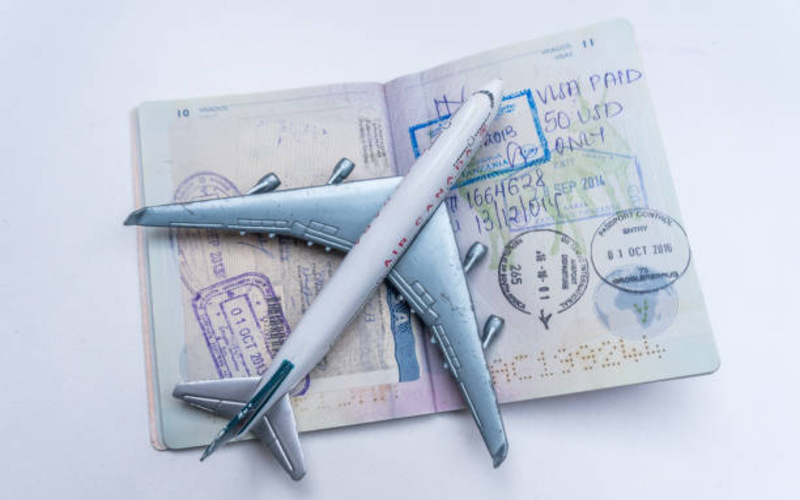Understanding the visa requirements for Argentina is essential for a smooth travel experience. This comprehensive guide provides a detailed overview of the various types of visas available, including tourist, conference, and Electronic Travel Authorization (ETA). Each visa type serves different purposes, whether for leisure, business, or short visits, and knowing which one suits your needs is the first step in the application process.

By following this complete guide to the Argentina visa, you can streamline your application process and avoid common pitfalls. Ensuring that all documents are in order and understanding the expected processing times will help facilitate a smooth and efficient entry into Argentina. With proper preparation, you can focus on enjoying your trip rather than worrying about visa complications.
Here is some Complete Guide to the Argentina Visa: Types, Application Process, and Requirements

1. Visa Types: Argentina offers various visa options depending on the purpose of your visit. The most common types include:
- Tourist Visa: Ideal for travelers visiting Argentina for leisure or tourism. This visa is typically issued for short stays and allows for exploration of the country’s rich cultural and natural attractions.
- Conference Visa: This is designed for individuals attending conferences, meetings, or other professional events in Argentina. It supports temporary stays related to business and academic activities.
- Electronic Travel Authorization (ETA): Many travelers from eligible countries can apply for an ETA instead of a traditional paper visa. The ETA is a convenient online application process that simplifies entry requirements for short visits.
Each visa type has specific application procedures and requirements, so it’s essential to check the details based on your travel needs and nationality.
2. Application Process: Applying for an Argentina visa involves several key steps to ensure a smooth and successful process. Here’s a comprehensive guide:

- Complete the Visa Application Form: Begin by filling out the visa application form accurately. This form can usually be downloaded from the Argentine consulate or embassy’s website. Ensure all fields are filled in correctly to avoid delays.
- Provide a Valid Passport: Your passport must be valid for at least six months beyond your planned stay in Argentina. It should have at least two blank pages for visa stamps.
- Submit passport-sized photographs. Typically, two recent passport-sized photographs are required. These should meet the specific size and quality standards set by the Argentine authorities.
- Proof of Financial Support: Demonstrate that you have sufficient funds to cover your stay in Argentina. This can include bank statements, pay stubs, or other financial documents.
- Proof of Accommodation: Provide evidence of where you will be staying during your visit. This could be hotel bookings, rental agreements, or an invitation letter from a host.
- Round-Trip Flight Tickets or Itinerary: Submit a copy of your round-trip flight tickets or a detailed itinerary showing your travel plans, including entry and exit dates.
Carefully prepare and submit these documents to the Argentine consulate or embassy to facilitate the visa issuance process.

3. Additional Documents: For specific visa types, additional documents may be required. For a tourist visa, you might need proof of travel insurance and a detailed itinerary. For a conference visa, include an invitation letter from the event organizer and a letter from your employer confirming your attendance. If applying for a student visa, provide proof of enrolment from an educational institution. These additional documents support your visa application and demonstrate the purpose and nature of your visit. Always verify the exact requirements with the Argentine consulate or embassy for your visa type.
4. Health Requirements: For certain types of visas, you may be required to undergo a health examination conducted by a panel physician. This step ensures that you meet the health standards set by Argentine authorities. The applicant is responsible for covering the costs associated with the medical examination. It’s important to schedule this examination in advance and ensure that all required health checks are completed and documented as specified by the visa guidelines. Always confirm the health requirements with the Argentina consulate or embassy to avoid any delays in your visa application process.
5. Processing Time: The processing time for an Argentina Electronic Travel Authorization (ETA) varies based on the service speed you select. Standard processing typically takes around 6 days, while expedited options can reduce the processing time to approximately 3 days. It’s essential to apply well in advance of your travel dates to account for any potential delays. For other visa types, such as tourist or conference visas, processing times may differ and can take several weeks. Always check the specific processing times with the Argentina consulate or embassy to plan your application accordingly.
Conclusion
Navigating the Argentina visa process can be straightforward when you understand the types of visas available and the requirements involved. Whether you’re applying for a tourist visa, a conference visa, or an Electronic Travel Authorization (ETA), knowing the specifics of each option helps ensure you choose the right one for your needs. Adhering to the application process, from gathering necessary documents to meeting health requirements, is crucial for a successful visa application.
In addition to outlining visa types, this guide delves into the complete application process. It includes information on required documents, such as proof of financial support and accommodation, as well as health requirements and processing times. By following this guide, you can ensure that you meet all necessary criteria and submit a complete application, making your journey to Argentina as hassle-free as possible.
Read more:



